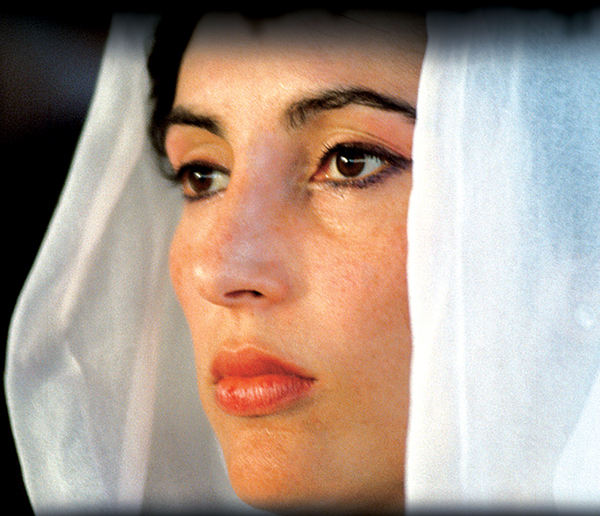|
Reviews of Recent Independent, Foreign, & Documentary Films in Theaters and DVD/Home Video

BHUTTO Pakistan, the world’s second largest Muslim country, is at the strategic and geographic center of international concerns over the war on terror and the spread of nuclear weapons. The documentary Bhutto is a useful and impassioned guide to the country’s history from the perspective of the Bhutto family, particularly through the henna-ringed eyes of the late Benazir Bhutto. Opening with her assassination after a political rally in 2007, the film goes back to Pakistan’s creation in 1947 and the rise of her father, Zulfikar Ali Bhutto, through the political ranks. Childhood photos show her glamorous Iranian mother with her two brothers and her sister (who is interviewed throughout) and onto her own Harvard and Oxford educations. The attractive, modern Muslim family was often compared to the Kennedys. Robert Kennedy’s daughter, Kathleen, was even her college roommate, and another classmate was Peter Galbraith, son of the one-time ambassador to India and a future ambassador himself. Both are talking heads here. Intriguingly, and in a departure for a Muslim leader, her father chose her, his eldest child rather than his eldest son, to accompany him on diplomatic trips after he became prime minister in 1973. In an audio interview, she proudly remembered when he rejected her need to wear a burqa, and she became the first woman in her family to emerge from adolescence uncovered. Journalists and family members then recount the accomplishments of his years in power before his overthrow in 1977 and execution two years later by the military. The next 30 years are then described as a complex tale of global lobbying, military coups, and Shakespearean vengeance as members of the Bhutto family are jailed, exiled, return in triumph, only to be overthrown, jailed, exiled again, and mysteriously murdered. Benazir was twice prime minister, in 1988 and 1993 (and the first national leader to give birth while in office). While Pakistan’s corruption, illiteracy, religion fundamentalism, and poverty mount through all this—a lot of statistics go by—no interviewee seems objective about the intertwining of the family’s and the country’s fates. (One of the film’s producers co-wrote a book with her.) Unique perspectives come through in intimate interviews with her family about Benazir’s personal life, especially her arranged marriage to the controversial businessman Asif Ali Zardari, who spent 11 of their 17 years together in prison for alleged corruption (never proved) before his present position as president. (This film gives more credence to his fears for his safety from the military than do the American diplomatic cables just released by WikiLeaks.) Relief from the hagiography comes from her embittered niece, Fatima Bhutto, who blames Benazir for her father’s death. She challenges her aunt’s democratic, feminist image as a bulwark against extremists by accusing her of letting the religious parties enforce traditional sharia law against women’s rights. International coverage
reconstructs
Benazir’s ballsy final
campaign, and
details are recounted by teary-eyed eyewitnesses who were with her at
the first near-miss bombing and then nearby at the final attack. (None
of the killers of her and her brothers have ever been identified.)
Even
without subscribing to the documentary’s glorification of
Benazir Bhutto as a martyr to
democracy, the personalizing of politics within this tinderbox helps
make Pakistan’s complex problems more comprehensible.
Nora Lee Mandel
|

